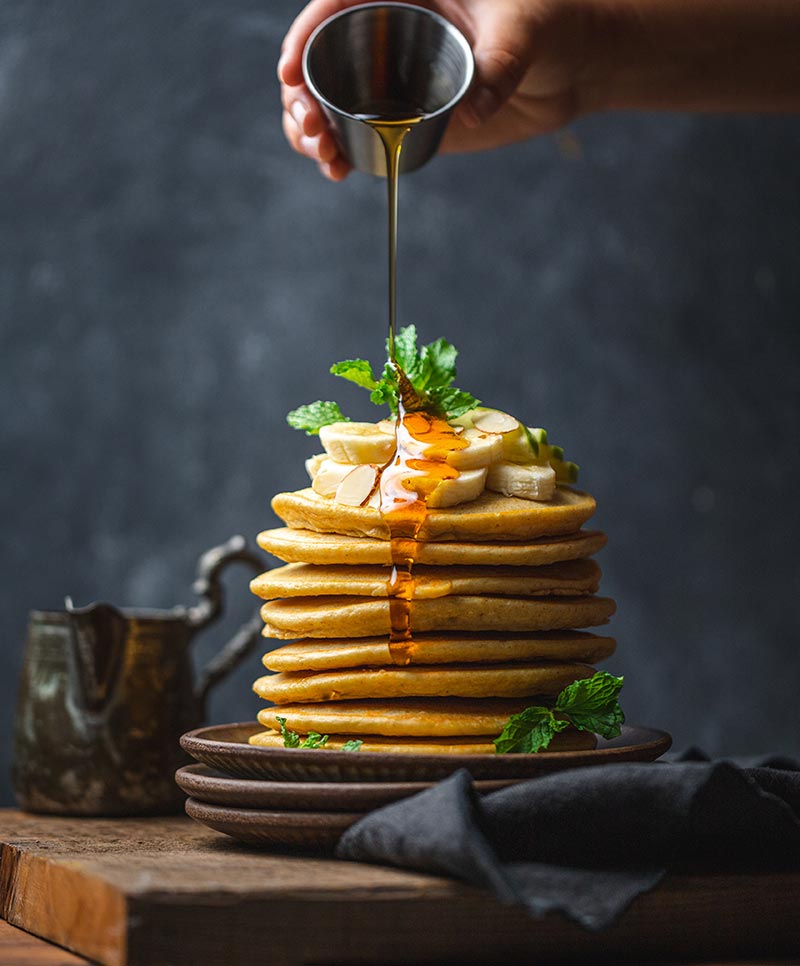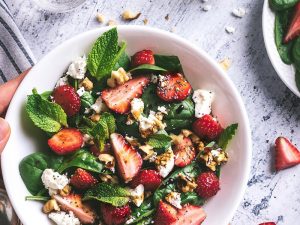Jallab is a traditional syrupy drink popular in the Middle East. It’s made from dates and rose water, flavored with green cardamom. It’s delicious and easy to make; you can also flavor it with spices like cinnamon or cloves.
The name comes from the Arabic word for “rose water,” but jallab is made with dates, not roses. Dates are the fruit of date palms, which grow in hot climates like the Middle East. When fresh dates are pressed they yield a sweet, sticky red juice that makes an excellent drink when mixed with rose water. The sweetness and stickiness come from sugars called fructose and glucose.
(If you buy dried dates at your local grocery store, don’t even try to make this recipe.)
You can buy rose water at Middle Eastern groceries, but it’s easy to make at home if you have fresh rose petals — see How to Make Rose Water . Green cardamom pods are very aromatic; if you don’t get them from an Indian grocer, substitute the seeds from 10 black cardamom pods.
Jallab is a traditional syrup drink popular in the Middle East. It is made from rose water, sugar, and cardamom. The jallab drink is served cold with ice cubes in tall glasses. Jallab is a very common drink in Egypt, and it is also known as jalabeeb or shahta. It is also very popular in Lebanon and Syria where it’s called Shorbat Adas. It can be used as a refreshing drink especially during summer days, but it also works as an excellent coffee substitute for those who are trying to cut down on coffee – Jallab has more caffeine than coffee does.
Jallab can be drunk alone or mixed with plain water, milk or regular coffee to produce a different blend of tastes and flavours. The ratio of jallab to water or milk may be varied to produce an individual taste.
Jallab is a traditional beverage popular in the Middle East. Its ingredients are simple and inexpensive, but it tastes wonderful, and once you know how to make it, it’s easy to whip up at a moment’s notice.
The name “jallab” comes from the Arabic word for rosewater, which is used in the drink. There are two main variations of jallab: plain and spiced. Plain jallab is made with water, sugar, rosewater or orange-blossom water, and cardamom. Spiced jallab adds a few spices to the mix. The most common version uses cinnamon and cloves along with the cardamom; some people use ginger as well as cinnamon. Both versions can be garnished with almonds or pistachios and an extra spoonful of rosewater or orange-blossom water on top.
Jallab is usually served chilled, with ice floating on top. It’s also delicious when served warm (hint: heat your glasses in hot water).
Jallab makes a great base for alcoholic drinks — add vodka or whiskey, rum or brandy, etc., to taste. But it’s delicious enough to be enjoyed on its own!
I’m a food blogger, and I’m just back from a trip to the Middle East. The trip was a big success: my luggage came back half empty. On the way home, I sat next to a woman who is getting her Ph.D in Middle Eastern studies. She told me that one of the most popular drinks in the region is jallab, which is basically what you’d get if you crossed lemonade with raisin water. I made jallab for the first time when I was seven or eight years old; it’s simple to make, but very tasty. So when I got back, I decided to write up a recipe for it.
I’d never written about food before, so this was new territory for me. But once I got started, it wasn’t that hard—recipes are pretty formulaic (and if they aren’t, they should be). And writing about food made me think about food in an unusual way: not just as something you eat at home or order in restaurants, but as something with a history and recipes with secrets and traditions behind them. It made me think of food as something you can do science on (and indeed there is a literature on the chemical composition of jallab syrup).
So while
Jallab is a sweet syrup drink popular in the Middle East. It’s flavored with rose water and cardamom and is served chilled or over ice. It’s not just for drinking—the syrup can be used to flavor coffee, tea, or light desserts like baklava.
Jallab (also called salep or serp) is most often associated with Egypt and the Levant, but it’s also popular in Jordan and Syria, where it’s known as salābeed سلابيد . In Lebanon, it’s served as part of Ramadan breakfast.
But what exactly is jallab made from? The syrup has a unique texture that’s somewhere between honey and molasses. It can be difficult to describe, but you’ll recognize it if you’ve tried it before.
Jallab is a traditional syrup used in Middle Eastern desserts and some savory dishes. In Egypt, jallab is also drunk as a beverage. Jallab is made by soaking dried fruit, usually dates and raisins, in water with sugar and spices. The mixture is boiled and then left to cool overnight.
I’ve been trying to make jallab at home for a while now but have never been happy with the results. I’ve tried different kinds of dates (Chinese, Medjool) and dried fruits (apricots, pears), but my jallab always turned out too sweet or too thin or sometimes both. I thought that maybe it’s just impossible to make good jallab at home. So I decided to try a new approach: experiment with the basic recipe instead of trying out different variations on the same theme. In other words, figure out how jallab is made traditionally and then try to produce something similar at home.
Here is the recipe I use to make jallab:*
– 1 cup of green cardamom pods*
– 1 cup of sugar*
– 1 cup of water*
– 1 teaspoon rosewater (optional)**
– 8 cups of water divided in two equal pots (4 cups in each pot)*
– 2 cups black tea leaves *
– 2 cinnamon sticks *
– 4 cloves **
– 2 cups orange slices *
– 2 cups raisins *
Directions: In a medium saucepan boil 4 cups of water, add the black tea leaves, spices and cloves. Once it boils reduce heat and let simmer for about 10 minutes. Remove from heat and strain into another large sauce pan. Add the remaining 4 cups of water in the second sauce pan and the sugar and bring to a boil. Add one cup of the boiled tea to this mixture, stir until all sugar has dissolved. Repeat with the other cup of tea. Let cool completely. Add the green cardamom pods, cover with plastic wrap and refrigerate overnight or at least 8 hours. Strain into another large sauce pan (or any container that you can pour it out of easily), discard pods and add rosewater. Serve chilled with ice. Jall

